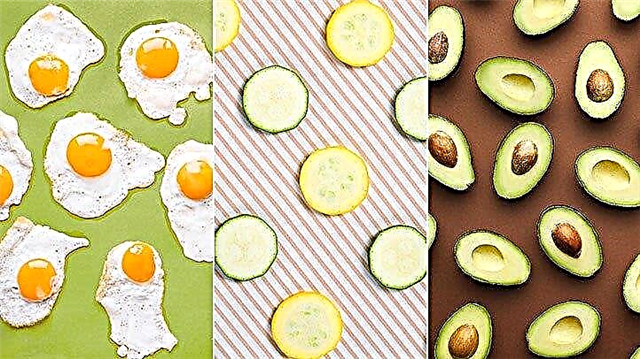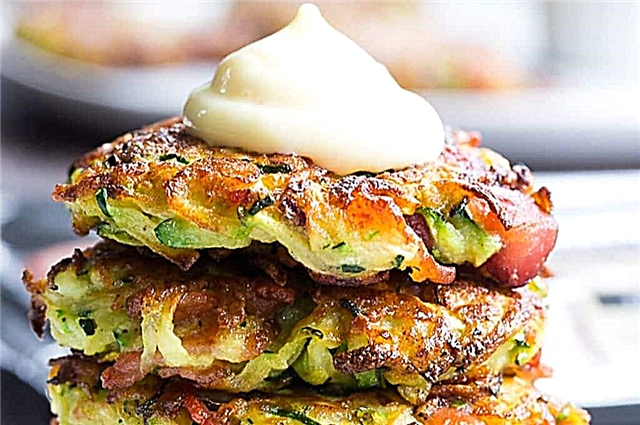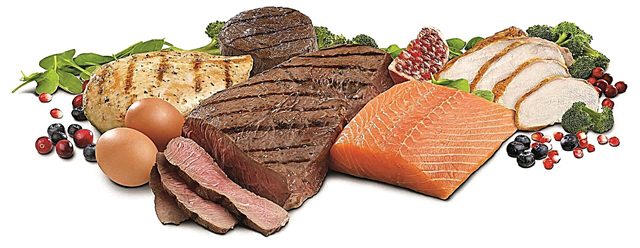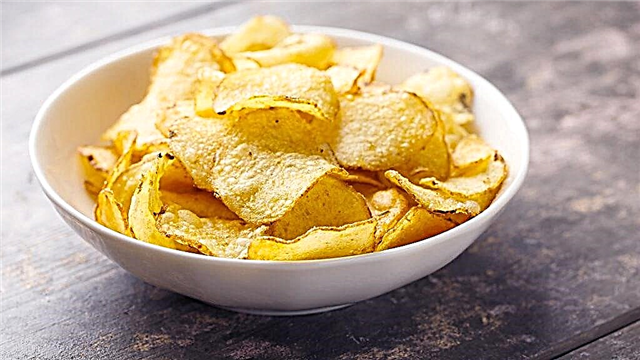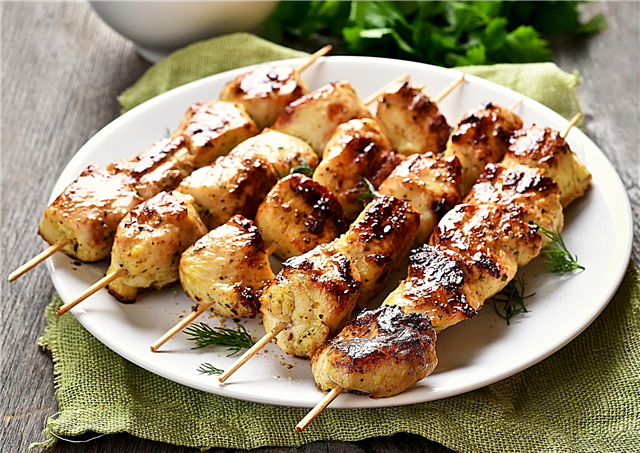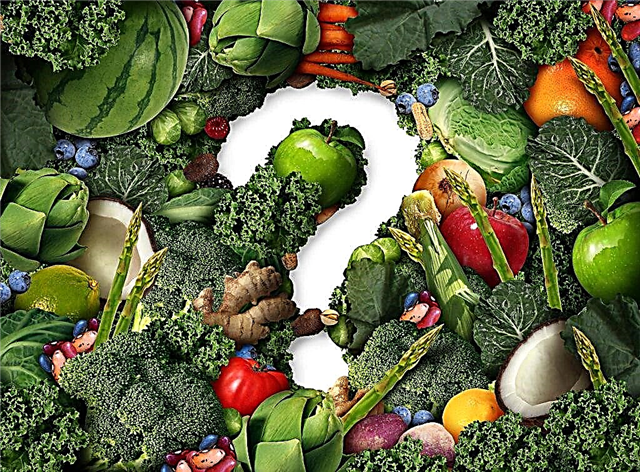People who are just getting started with low-carb diets have many questions, this article lists the most common ones, as well as the basic rules of the keto diet.
- Weight loss
- Diabetes and blood sugar
- Food, hunger and taste
- Cholesterol
- Medicines
- The Science Behind Low Carb Diets
- Common Concerns About Low Carb Diets
- Common side effects
- Ketosis, ketone bodies and ketogenic diets
- Low-carb diet for different groups of people
- How Much Can You Eat on a Low Carb Diet?
- Links for more information
Weight loss

I’m not losing weight on keto as quickly as I want to, or I’m hitting a plateau on keto. What to do? There are several things you should look out for in order to lose weight:
- Eat a strict low-carb diet with less than 20 grams of carbs per day.
- Eat only when you are hungry and avoid snacks.
- Try intermittent fasting.
- Get enough sleep (7 or even more than 8 hours a night) and avoid undue stress.
As you approach your ideal weight, your rate of weight loss is likely to slow down. It is normal to reach a temporary plateau at some point. It is also worth remembering that weight fluctuations of several hundred grams occur every day. Therefore, don't panic. If you have stopped losing weight for many weeks or even months, and you want to speed up your weight loss on keto, heed the following tips.
Do people who quit a low-carb diet and return to their old eating habits gain weight quickly? Can low carb diets cause “carbohydrate intolerance”?
People who follow a low-carb or keto diet tend to lose more weight than other diets (on average). It makes sense that when you go back to your old diet, you can regain those pounds that you have successfully got rid of. Thus, inappropriate cessation of a low-carb diet provokes more weight gain than other diets.
There is no evidence that following a low-carb diet can cause carbohydrate intolerance. However, “cheating day” (from the English - cheating) can lead to filling up your body's sugar reserves (glycogen), which binds large amounts of water, adding weight. This weight of water (0.5 - 1 kilogram or slightly more) quickly disappears within a few days when you return to a low-carb diet again.
How to STOP losing weight?
Some people find it easy to lose significant weight on a low-carb and keto diet. Usually, weight loss is suspended and kept within normal limits, as long as you eat enough, self-regulate food intake, guided by the feeling of hunger. However, if you are concerned about your continued weight loss, you can do the following:
- Eat often, at least three times a day, add enough protein to your diet, start exercising.
- Eat slightly more carbs (such as low-carb fruits, sweet potatoes, etc.) to build up glycogen and fat stores.
It can be concluded that there is usually no need to interrupt a low-carb diet to stop losing weight. This will happen when you reach the ideal weight, specifically for your body.
If I want to, can I gain weight on a low-carb diet?
Most people find it difficult to gain weight on a low-carb diet. But you can build muscle.
Diabetes mellitus and blood sugar

Is a low carb diet good for people with type 2 diabetes?
Yes. It is difficult for people with type 2 diabetes to regulate their sugar levels. The pancreas produces a lot of the hormone insulin to remove sugar from the blood and store it in the cells of the body. This may require more and more insulin, leading to a vicious cycle of insulin resistance and the consequences of high insulin levels in the blood (including weight gain).
By following a low-carb diet, you can lower your blood sugar, insulin levels, and your need for medications. So yes, a low-carb diet can be very beneficial for patients with type 2 diabetes. It can even reverse illness.
If you are taking diabetes medications, especially insulin, you need to closely monitor your blood sugar levels, adjusting your medication dosage (downward) according to your diet to avoid too low blood sugar. It is imperative to consult with your doctor. For more information on how to treat type 2 diabetes by following a low-carb diet, read our guide.
Is a low carb diet good for people with type 1 diabetes?
Yes. It can help stabilize blood sugar levels and reduce the need for high doses of insulin (also helping you lose weight when needed).
When starting a low-carb diet, you will need to adjust your insulin dosages. Significant changes may be required, such as a 30-70% reduction in insulin dosage, depending on the specific situation. This can only be found out by measuring the level of sugar in the blood, after which the required dose of insulin is adjusted to your specific needs as a treatment for diabetes mellitus.
Should I be worried about low blood sugar on a low carb and keto diet or intermittent fasting?
If you are feeling great and are not taking any diabetes medication, then there is no reason to worry. Blood sugar levels can be slightly lower than normal on a low-carb diet, especially when you are in ketosis. In this situation, the brain can use ketones for fuel and does not have a high need for glucose. Read about whether the brain needs carbohydrates in our article.
If you are feeling great, you probably have enough blood sugar for your body. If you are taking diabetes medications such as insulin or other diabetic medications, low blood sugar is a sign that you may need to lower your dose.
High blood sugar in the morning - why?
High blood sugar in the morning is common. This phenomenon is known as the “dawn effect” and is due to the production of hormones by the pancreas. This effect may be even more pronounced on a low-carb diet than on other diets.
Many people wonder how their blood sugar remains elevated in the morning while their average blood sugar (measured as HbA1c) is successfully reduced by
a low-carb diet and is kept at a normal level throughout the day. This is usually a natural phenomenon, caused by an increase in cortisol and other hormones in the morning, which causes the liver to release glucose, thereby raising blood sugar levels. This phenomenon can be seen as the body's way of preparing you to become active again after sleep.
Food, hunger and taste

What foods are not recommended?
There are several foods that do not contain too many carbohydrates, but which may not be suitable for a person due to health problems, weight loss, or taste preferences. These include:
- Dairy products such as milk and yogurt.
- Artificial sweeteners such as aspartame, sucralose, and acesulfame-K. They can maintain sugar cravings, causing constipation and overeating. In some cases, foods that contain these sweeteners are also quite high in carbohydrates.
- Nuts - some of them are high in carbohydrates and can easily become a cause of overeating. Check out our guide to nuts on the keto diet.
- Oils that are rich in omega-6 fatty acids, such as canola and soybean oil, are highly processed and their health effects are not fully understood. Find out which fats are good for keto in our guide.
- Alcoholic drinks that contain quite a lot of carbohydrates. The best options are low-carb wine and pure spirits. Guide to
low-carb alcoholic beverages. - Fruits. In most cases, they contain a lot of sugar. Read our guide to find out which fruits and berries are best for a low-carb diet.
- Low carb biscuits / bread / pasta. Not a great idea, given that the vast majority of these foods actually contain quite
a lot of carbohydrates.
I am constantly hungry and want to eat between meals. What should I do?
You shouldn't starve between meals on a low-carb diet. Try this: Eat more with each meal, especially increase your fat intake. Add more fat to your meals until you feel full. Add butter to food. Add olive oil to salads. And maybe check out our low carb condiments and sauces recipes for more inspiration. Every meal should contain a tasty, high-quality protein source.
If I am lowering carbohydrates and even limiting protein ... What can I eat?
There is usually no need to limit protein, it is necessary to eat the “recommended” amount of protein. Just don't overdo this part of your diet. Remember, the LCHF diet is low in carbohydrates and rich in fat, not a high protein diet. Read our guide to protein intake.
With a standard low-carb diet, you simply remove carbohydrate-rich ingredients such as rice from your diet. Add some vegetables and some natural oil or fat-based sauce to your diet. But there are tons of other options.
Here you can find low-carb recipes suitable for breakfast, lunch and dinner, as well as a large selection of keto desserts.
I want to eat high-carb foods. Is it okay to have a cheat meal from time to time?
The decision is yours - a cheat meal may not be a good idea for everyone. If you want to minimize the effects of keto cheating, then check out our guide.
I really really want to eat carbohydrate foods even when I'm not hungry. What should I do?
Low-carb and keto diets can be tough. Fortunately, avoiding sweets and other carbohydrate-rich foods will help you get rid of your carb addiction over time.
High cholesterol and low carbohydrate diet

Is it bad to have high cholesterol?
High cholesterol levels are a risk factor for many heart diseases. In addition, many other factors, such as smoking, blood pressure, and blood sugar, affect your risk of developing heart disease. When it comes to cholesterol, it is important to consider not only the total level, but also look at the constituents of cholesterol, for example, HDL - high density lipoproteins (better when their levels are high) and triglycerides (better when their levels are low).
Do I need to take statins?
Taking statins is a good way to reduce the risk of heart attack in people who already have heart disease or who are at risk. Ask your doctor how much benefit you can get from taking statins. There are various ways that you can improve your cholesterol profile without taking medication.
Medicines

I am taking certain medications, will it slow down my weight loss?
There are some medications that can make it difficult to lose weight, but may not necessarily stop it completely. The most important of these are:
- Insulin
- Diabetes Medication
- Cortisone and other steroids
There are also other medications that can interfere with weight loss. If you are doing everything right but are not losing weight due to medication, talk to your doctor. Find out if you can reduce the dose of medication that interferes with weight loss or stop taking it altogether.
Science and low-carb diets

Does insulin play a significant role in weight gain / loss?
Yes, insulin is a hormone that helps store fat. It plays an important role in weight gain and obesity.
Why are Asians thin despite eating rice?
Countries such as China and India now have problems with obesity and type 2 diabetes. However, in these countries, most of the population is poor. Their thinness is likely due to the fact that they do not eat a lot of sugar or starch.
Common Concerns About Low Carb Diets

I am afraid that …

What is the biggest fear that scares people when starting a low-carb diet? We recently conducted a small survey. Here are the results:
Some people had no fear at all when starting the diet, while others had concerns about safety, decreased athletic performance, and a fear of losing weight too much.
Are saturated fats dangerous?
The fear of saturated fat is unfounded. Check out our
guide to saturated fat.
Will the brain stop working without carbohydrates?
Not. The brain works great on carbohydrates, but it also works equally well on ketones, which are derived from fat. So you're using your constantly hungry brain to burn fat 24/7. That's pretty good.
Read our guide: Food For Thought: Does Your Brain Need Carbohydrates?
Can't red meat lead to cancer?
This is highly unlikely, even though unprocessed meat is preferred in low-carb diets. On the other hand, substituting processed carbs for meat can be one of the worst things you can do for your health and weight.
Is salt dangerous?
As long as your blood pressure is under control, moderate amounts of salt are safe for your health.
Can you get osteoporosis (weak bones) on a low-carb diet?
Not as long as you eat enough to meet your nutrient needs. This rule works for any diet. A low-carb diet can provide everything
essential for keeping bones strong and healthy.
But what about gallstones and a low-carb diet?
Fat-rich foods can get you into short-term trouble if you already have gallstones. A diet low in fat can lead to the formation of gallstones in the long term.
Can hypothyroidism be earned on a low-carb diet and a keto diet?
No, this is unlikely on a well-designed, low-carb diet that involves getting enough energy from fat rather than carbohydrates. Thyroid problems have not been reported in studies on the effects of low-carb diets, and doctors generally report that they do not see new thyroid problems in patients following low-carb diets. However, fasting can lead to hypothyroidism. Remember that if you eliminate both carbohydrates and fats from your diet, you will starve. So you need to eat carbohydrates or fats so that the body receives the substances necessary for normal functioning.
Side Effects of Low Carb Diets
I have side effects of the keto diet - should I be worried?
There are several side effects that are quite common during the first few weeks as your body adapts to a low-carb diet.
They are usually temporary and should not be a cause for concern (even if they may be unpleasant). These include:
- Induction or ketogenic influenza
- Dizziness
- Leg cramps
- Constipation
- Bad breath
- Heart palpitations
- Decreased physical performance.
To mitigate these side effects, drink plenty of water with salt or lemon juice.
However, if you are taking blood pressure medications and feel dizzy, it may be because low-carb diets lower your blood pressure and you may need to adjust your dose of your medications.
If you'd like to learn more about how to treat the side effects of the keto diet, check out this guide:
Common side effects of low-carb diets and how to deal with them
Ketosis, ketone bodies and ketogenic diets
Is it dangerous to be in ketosis?
No, ketosis is a natural state, and it is safe for a healthy person.
Read More: The Complete Guide to Ketosis
People often confuse ketosis with ketoacidosis. This is a dangerous condition caused by a lack of insulin, which mainly occurs in people with type 1 diabetes who take too little insulin. The keto diet should be started with caution while breastfeeding or taking diabetes medications.
Why am I not in ketosis despite following a completely low-carb diet?
The most common reason people don't reach ketosis is because they eat too many carbohydrates: hidden carbohydrates in the foods they eat, or carbohydrate addiction where you start eating more and more carbohydrates without realizing it.
Eating too much protein can be another obstacle to ketosis. To be in optimal ketosis, you should consume between 1.2 and 1.5 grams of protein per kilogram of body weight at the moment. Instead, you can calculate your protein amount based on your ideal body weight, which you are aiming for if you are overweight. Insulin resistance can also make it difficult to enter ketosis.
Do I need to be in ketosis to lose weight and lose body fat?
No, you don't have to be in ketosis to lose weight. Your body burns fat whether you're in ketosis or not. The difference is that in ketosis, you burn more fat.
Top tips for those looking to lose weight on the keto diet:
The Complete Guide to Ketosis
Low-carb diet and certain groups of people
Can people with diabetes eat a low-carb diet?
Yes. Diabetes mellitus is an increase in the concentration of glucose in the blood, so by eating fewer carbohydrates, which are converted into sugar in the body, type 2 diabetes can be reversed. People with type 1 diabetes may also benefit from a low-carb diet.
If you are taking insulin for any type of diabetes, you will need to monitor your blood sugar closely to avoid hypoglycemia (low blood sugar) as your daily insulin dose is reduced on a low-carb diet.
Can people who have had their gallbladder removed eat a low-carb diet?
Yes, although they may need to be more careful and gradually increase their fat intake.
Are low-carb diets allowed for children?
Sure. Children are better off limiting their intake of sugar, starch and well-processed foods, and instead eat natural foods: healthy fats, meat, fish, vegetables, nuts, and low-carb fruits and berries. It is a highly nutritious diet for a growing body. But usually, kids don't need to eat a strict low-carb diet. Just give them wholesome, minimally processed foods.
Can women who want to get pregnant eat low-carb foods?
Yes. The keto diet can increase fertility, as the main cause of infertility is often caused by high insulin levels as a result of high carbohydrate intake.
Can Women Eat a Low Carb and Keto Diet During Pregnancy?
Eating a well-balanced, low-carb, high-fat diet is known to be safe during pregnancy. Many women have successfully tested this for themselves. However, there have been no full-fledged scientific studies of the condition of women during pregnancy and while following the keto diet. For this reason, we recommend not switching to a strict low-carb diet during pregnancy unless there is a specific medical reason for doing so. It makes more sense to follow a liberal, low-carb diet with over 50 grams of net carbs per day.
When you eat minimally processed, low-carb foods such as natural fats, meat, poultry, fish, seafood, vegetables and berries, you are giving both your body and your baby enough nutrients to stay healthy.
Can women eat a low-carb diet while breastfeeding?
A natural food diet is a great way to provide yourself and your baby with enough nutrients to stay healthy and not gain weight. We recommend that women who are breastfeeding eat at least 50 grams of net carbs per day.
Can healthy, lean people eat a low-carb diet?
Yes, definitely. You won't hurt yourself by eating minimally processed foods and cutting back on processed foods, sugar, and starch.
If you are a slim and healthy person, you can eat a liberal, low-carb diet.
How Much Should I Eat on a Low Carb Diet?
So ... how much do I have?
The main rule of the keto diet, like any other, is that you should eat while you are hungry and stop when you are full. Don't force yourself to eat or choke on food. This is pretty straightforward for people on a low-carb diet based on low-pre-processed foods. Counting the amount eaten usually makes the diet very difficult. Better to learn to listen to your body instead.
Why don't you tell people to count calories?
Because it's impossible to know exactly how many calories your body needs to lose weight. Insulin plays an important role in whether we gain or lose weight. By focusing on lowering your levels of insulin, the hormone that forms fat, you can lose weight without counting calories.
It is much more effective to stick to a low-carb or keto diet, do intermittent fasting, monitor sleep quality and stress levels, and do strength exercises (all of which help to lower insulin levels), rather than wasting time counting calories.
Calorie counting and limiting is not only an extra job, but it tends to be ineffective in the long run. This often leads to starvation and diet cessation.
Read more: Should you count calories on a low carb or keto diet?
How many carbohydrates should I eat?
When trying to lose weight, eating as little carbs as possible is usually most effective. Ideally, you should consume less than 20 grams of carbs per day (strict keto diet). Healthy and slender people usually don't have to limit themselves so severely.They will feel just as good on moderate (20-50 grams) or liberal (50-100 grams) low-carb diets.
How Much Protein Do I Need to Eat on a Low Carb Diet?
Again, it is usually not necessary to strictly monitor your protein intake as long as you eat naturally low-carb foods and eat until you feel full.
If your goal is weight loss or you are maintaining your current weight, there is no need to worry about too much protein in your diet.
How Much Fat Should I Eat on a Low Carb Diet?
If you are restricting carbohydrates and eating moderate amounts of protein, then you should eat enough fat to be full between meals. You do not need to eat a minimum of fat and be hungry, but you also do not need to consume excess fats.
Addition
Did we miss an important question? There is a lot of useful information on our site about low-carb diets.
Here are some of our most popular guides:

